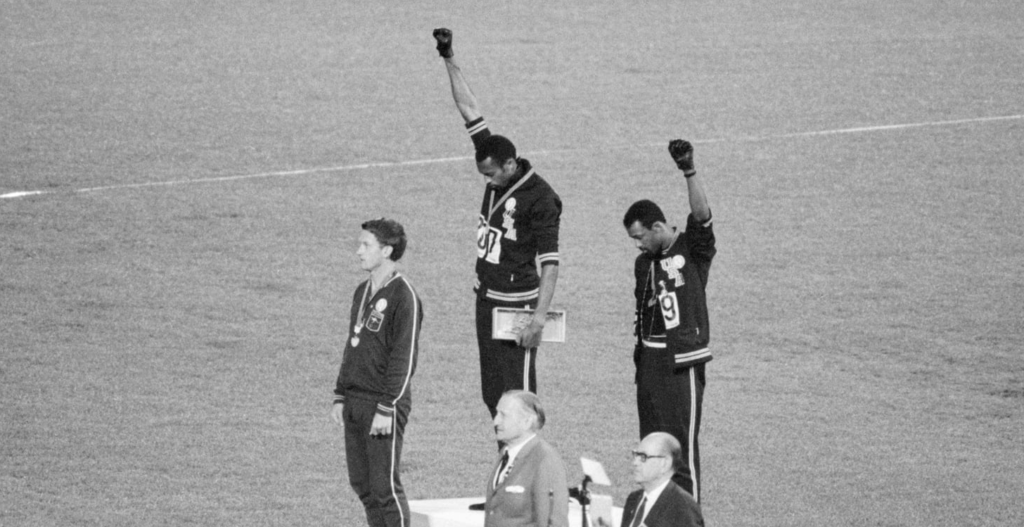
During the 1968 Summer Olympics, U.S. sprinters Tommie Smith and John Carlos bowed their heads on the medal platform as the “The Star-Spangled Banner” played and raised their fists as a sign of protest. In his autobiography, Smith stated that the gesture was not a “Black Power” salute, but rather a “human rights” salute. Nonetheless, the demonstration has been referenced as one of the most political statements in the history of the Olympic games.
Years later, we are reminded of this instance through Gwen Berry, a track and field athlete, who recently competed in the women’s hammer throw final at the 2020 U.S. Olympic Track & Field Team Trials. Berry sparked controversy as she turned away from the American Flag during the national anthem while standing on the podium after receiving a bronze medal. Prior to this, Berry also raised a fist during the 2019 Pan American Games, for which she was placed on probation.
After considering the historical context and the larger implications of individual demonstrations during the Olympic games and trials leading up to it, the Technique believes it is necessary to uphold the political neutrality of the 2020 Summer Olympic Games and maintain Rule 50 of the Olympic charter which partly reads: “No kind of demonstration or political, religious or racial propaganda is permitted in any Olympic sites, venues or other areas.”
Berry claims that her protest was against the historical racism that the song represents and that she would not stand or acknowledge something that disrespected her people. While we believe that Berry had the right to demonstrate her beliefs during the U.S. trials, it is important to consider that not every athlete who will be competing at the international level of the Olympics has the same freedom to do so.
The ability to protest is a privilege that constituents of the United States have, but it is not a luxury afforded to every Olympic athlete by their own country, and one of the reasons why the Olympic games push for political neutrality is to protect athletes from political interference or exploitation. Rule 50’s prohibition from political demonstration on the international stage is also put into place to protect people from negative expressions, like someone raising their hand in a Nazi salute.
The Olympic games are undoubtedly political to a degree, with sports and politics being tied to national identities by raising a sense of pride for countries with award-winning athletes, but it is important to consider whether the Olympic stage is the best platform to express one’s personal beliefs or if there are more effective ways to do so elsewhere.
We find that there is enough value in making an international stage as apolitical as possible as a measure to protect athletes, for there is a thin line between expressing your personal beliefs publicly versus being used as a political pawn to push a country or politician’s agenda.
